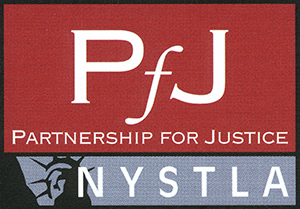If Wrongful Death Damages Are Recovered, Is That Money Taxable?
Posted on September 13th, 2019 by Oddo & Babat, P.C.
What Is a Wrongful Death Lawsuit Settlement?
When a person dies because of another’s negligent behavior, the survivors of the deceased may file a wrongful death lawsuit. In the suit, the plaintiff asks the courts to hold the accused responsible for the death. If the survivors win the suit, the court orders the defendant to pay some amount to the prevailing side. Such awards for damages can be substantial, leading some to wonder about the tax implications.
What Does the IRS Say About Wrongful Death Lawsuit Settlements?
The Internal Revenue Service (IRS) policy on proceeds from a wrongful death lawsuit settlement states that awards for physical illness or injury, including death, are not taxable. However, the award must be compensatory, meaning that it must be a payment for the plaintiff’s pain and suffering. Since they are not taxable, the compensatory dollars do not have to appear on the federal tax return. While not taxable as income, if the funds from a wrongful death lawsuit enter the deceased person’s estate, they are subject to estate tax. However, if those funds put the value of the estate over the current dollar amount set by statute, federal estate taxes are waived.
Any additional amounts received, such as punitive damages, are not considered compensatory and are therefore taxable. Punitive damages are awarded by the court when it finds that the defendant acted egregiously or outrageously to cause death. They are most common when the defendant’s actions were intentional. As the name implies, punitive damages are to punish and discourage the defendant from the behavior in the future.
Are There Exceptions to the Rules About Wrongful Death Lawsuit Settlements?
A few exceptions to the rules about compensatory and punitive damages do exist. Both of these exceptions are complicated, so if you think you might qualify, you should consult a tax professional.
- Some or all of a compensatory damage award may be taxable if, in a previous year, you itemized deductions and claimed medical expenses related to the death of your loved one. If you always took the standard deduction, this won’t be a factor for you, since you must itemize to take medical deductions.
- Punitive damages may be exempt from taxes in states that recognize only punitive damages as part of a wrongful death lawsuit. The IRS defers to state law in those circumstances.
If you have lost a loved one due to the actions of another person or business entity, you may have grounds for a wrongful death lawsuit. Contact a knowledgeable wrongful death lawyer in Des Moines, IA who is familiar with the laws in your jurisdiction to help you evaluate your options.
Thanks to Johnston | Martineau, LLP for their insight into personal injury claims and wrongful death compensation and taxes.


 I consulted with David the first time a couple of years ago on a serious matter that affected a very close member of my family. Not expecting a good experience from this serious situation coupled with an attorney consultation, the entire thing surprised me as it was pleasant, professional, and completely successful. We found him clear, direct, generous and extremely knowledgeable throughout the process. I give my very strongest recommendation
I consulted with David the first time a couple of years ago on a serious matter that affected a very close member of my family. Not expecting a good experience from this serious situation coupled with an attorney consultation, the entire thing surprised me as it was pleasant, professional, and completely successful. We found him clear, direct, generous and extremely knowledgeable throughout the process. I give my very strongest recommendation








